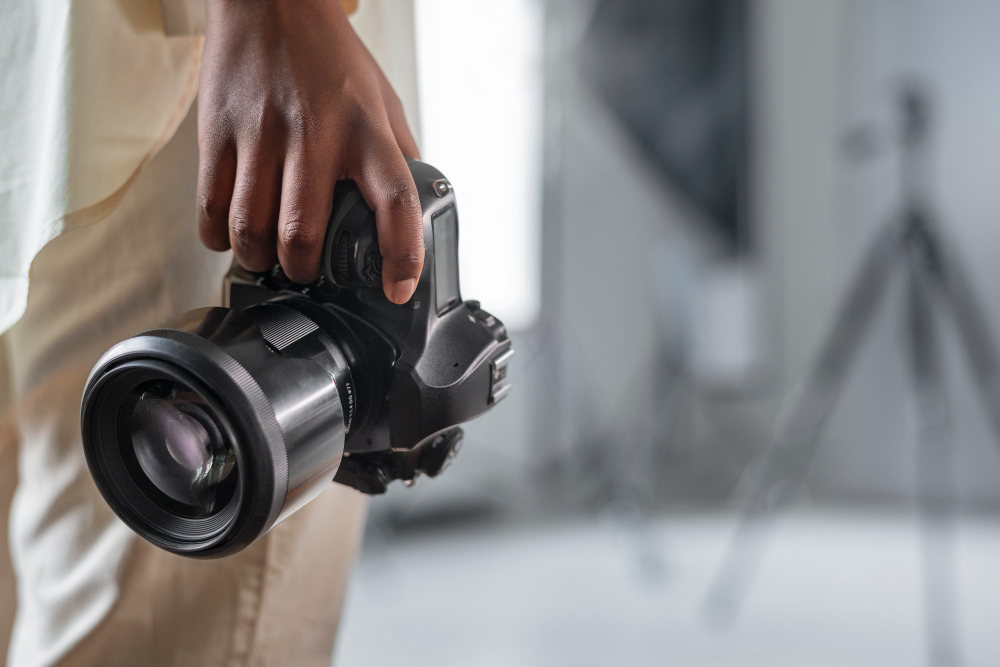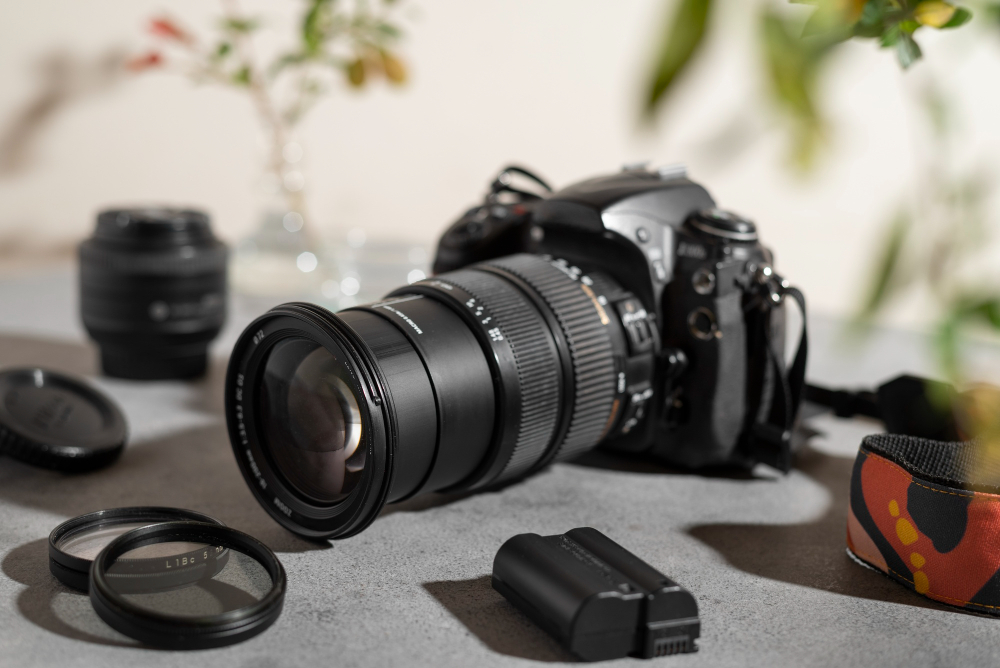Key takeaways
- A photography major opens doors to various industries, including media, marketing, and fine arts.
- With a relevant degree in photography, you can develop skills including technical competencies as well as creativity and artistic expression.
- Photography majors will allow you to learn how to tell stories visually, using color theory, composition, and unique perspectives.
- One of the most popular career choices for graduates is becoming a freelance photographer.
- To become a freelance photographer, you need good networking and negotiating skills, along with a strong portfolio.
- Another common career path for photography majors is launching an independent photography business.
- Photographers can focus on various specializations in their career including wedding/event photography, wildlife photography, portraits, and so on.
- Many photography graduates can find work in other related fields such as in newspapers, magazines, and online publications.
- Factors like economic conditions and college education and reputation makes a great difference in the job outlook for photography majors.
Young people are constantly looking for creative and enjoyable professions that will not cause boredom. In addition to this, a big question that bothers many people in the middle of college planning is what kind of work will they be eligible for with a major in a particular field. All of these questions help them decide which major to choose, which specialization to opt for, and how to maneuver their careers in the right direction.
So, if you are wondering what are the job prospects after graduating with a photography degree, you have come to the right place. In this article, we discuss the possible career outcomes of photography majors and help you understand the industry trends.
Therefore, a photography degree can open many doors if you aspire to be a freelancer, start your own business, or work for a company. This guide will explore the skills acquired in a photography major, potential career paths, factors affecting job outlook, and where to find opportunities in the field.
What skills can I get with a photography major?

Whether you opt for photography majors or go for any other liberal arts or business management degree, there are always certain learning outcomes. All degree plans follow a set path that allows students to develop particular professional and personal skills. As a result, these skills allow them to prosper and excel in their respective fields.
Therefore, a huge part of the job outlook for photography majors is the skill set. The kind of skills you develop determines what would be types of career paths available to you. So, before we look at the answer to “what can I do with a photography major” let’s explore the skills that you develop.
Technical proficiency
Just like any other skill or profession, photography also needs an in-depth understanding of numerous things. It is much more than just clicking a button. Therefore, it requires an in-depth understanding of numerous penalties such as lighting and composition.
So, as a photographer major, you will master the mechanics of different types of cameras, from DSLRs to mirrorless models, learning how to adjust shutter speed, aperture, and ISO to achieve the perfect exposure. Additionally, you will become proficient in using various types of lenses and filters to create distinct visual effects. Post-production is another essential aspect, and students gain expertise in industry-standard software such as Adobe Photoshop and Lightroom.
Creative skills and capabilities
In addition to technical proficiency, photography also requires a good blend of creative skills and understanding. Therefore, a photography major helps students develop their own unique style by experimenting with different shooting techniques, angles, and compositions. Moreover, it requires a deep understanding of color theory, lighting dynamics, and visual storytelling. These skills allow photographers to evoke emotions and communicate messages through their work.
So, whether you are interested in capturing the raw energy of a street scene, the elegance of a portrait, or the vast beauty of a landscape, a bachelor’s degree will train you to see the world differently. Through coursework and hands-on projects, you will be able to refine your ability to create compelling imagery that stands out in a rather competitive industry.
Business skills
Many photography graduates opt for establishing their individual or independent working arrangement rather than working a job.l in other cases, many graduates take up creative and related jobs instead of purely photography jobs in the starting of their career. Therefore, they may be working in marketing and utilizing their creativity skills along with some business sense.
Hence, most of the photography degrees in the USA offer students a range of electives to choose from, along with core courses that focus on business acumen. So, when graduates choose to work as freelancers or start their own businesses, they need to know how to price their services, manage client relationships, and market their work effectively.
Additionally, a photography major often includes courses on business management, where students learn about contracts, copyright laws, and financial planning. Furthermore, they explore digital marketing strategies, such as creating an online portfolio, leveraging social media platforms, and utilizing search engine optimization (SEO) techniques to attract potential clients
What can I do with a photography major?

So, now that you know what skills are you most likely to develop, here is the answer to “what can I do with a photography major?”
Become a freelance photographer
One of the most obvious and straightforward career paths to choose after a degree in photography is to work as a freelancer. In particular, freelance photographers tend to find work with flexible timings, deadlines, and deliverables. Moreover, freelancers also can work for short-term contractual work instead of getting locked in on a job for years.
However, there are some important tips to become a successful freelance photographer. For example, you must enrich your skill set by opting for additional academic resources such as short courses and certifications. In addition to this, freelancers are constantly trying to capture clients, so good negotiation and networking skills are essential. Furthermore, you also need to work harder on building a portfolio that can truly impress potential clients.
Lastly, freelance photographers can specialize in any of the following:
- Wedding Photography – Capturing moments for couples on their special day
- Portrait Photography – Taking professional headshots, family portraits, or fashion
- Event Photography – Covering corporate events, concerts, or sports
- Stock Photography – Selling images to stock photo websites like Shutterstock or Getty Images
Start your photography business
A freelance photography career and a photography business are very similar in nature. Firstly, both require you to work independently with various clients instead of sticking to one job. Secondly, both require a portfolio and some common skills, such as negotiation and networking.
However, there are still some core differences between working as a freelancer and operating a photography business. In particular, with a photography business, you will require a stronger business acumen and most likely a larger investment amount. Additionally, a business will give you the opportunity to recruit and hire great talent to help your business prosper.
With the right business acumen, graduates can establish their own studios or online platforms. Moreover, you can also explore different specializations, or offer multiple at once. Wedding and event photography businesses tend to be extremely successful.
For more information on having a photography business, check out this guide!
Find a relevant job
Starting your independent venture might not be part of your career plan. However, this does not mean that you cannot opt for a photography majors. Instead, there are numerous alternative career paths you become eligible for with photography majors.
Finding a job as a photography graduate requires a mix of skill, experience, and strategy. Many photographers start as assistants or interns to gain hands-on experience and build connections in the industry. However, keep in mind that beginner-level positions might not pay as good as you may expect. Yet, with dedication and professional growth, you will find rewarding jobs. In addition to these jobs, you will also be eligible for other paths such as journalism, fine arts, and even marketing opportunities.
Furthermore, for entry-level positions as a photographer, you can easily find work in studios, media agencies, fashion brands, and corporate companies that require in-house photography services. Some of the most common jobs for beginners include:
|
|
Factors affecting the job outlook for photographers

For most of the professions and careers, there are some important external factors that can influence the job outlook. Therefore, it is important to look over these factors so that you are fully aware of the scope and success of your career choices. These factors include:
Economic conditions
The first and simplest factor is the economic condition overall of the entire nation as well as globally. When the economy is struggling, companies and individuals reduce spending on non-essential services. As a result, fewer full-time positions and lower freelance rates come up on the surface.
Additionally, stable and growing economic conditions allow new businesses as well as established pens to spend more on activities like photography. Even for personal use such as family portraits and event photography, the buying power of your target audience increases. Therefore, job outlook changes.
College education and qualifications
Secondly, it is vital that you choose the most credible and reputable college for your photography degree. High accreditations give a college a more positive impression on the employer, making you a much more potential candidate. So, graduating from a well-known institution like the Rhode Island School of Design (RISD) or the School of Visual Arts (SVA) can provide access to a strong alumni network, internships, and industry connections. In addition to this, you can also explore the option of short courses and diplomas to further enhance your portfolio.
Explore the complete list of the top photography programs NYC!
Conclusion: what can you do with a photography degree?
So, we hope to have answered your question. The simplest answer to this question is that yes, there are promising job prospects for photography graduates. However, a formal education in this field is the best way to guarantee the most rewarding career outcomes.
A photography degree offers a diverse range of career opportunities, from working as a freelance photographer to launching your own business or securing a job in media, marketing, and fine arts. With the right mix of technical proficiency, creative vision, and business acumen, photography graduates can carve out successful careers in various industries.
